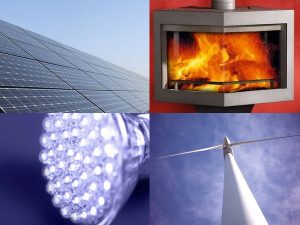As heat pumps are featuring more and more in the news recently need to make sure we are as informed as possible. John Cantor from HeatPumps.co.uk asks the question: Are some heat pumps performing as badly as various recent stories have been reporting?
Let’s imagine if we procured cars in the same way we do home heating.
We would start with a body shell, then get someone to fit wheels to it, hopefully placed in the best position and sized for our purpose. We would then find an engine of a suitable power for our needs and couple it up to a gearbox with the best ratios. We would need some way of controlling it all, and then learn how best to drive it.
In many ways, installing home heating can be little like this. We have a ‘body shell’ that may be insulated or not. It may be lightweight or slow-to-heat heavy stone. We then fit radiators or underfloor pipes. Then we install a heat pump along with all its gubbins… we now have to set the controls and ‘drive’ it as efficiently as possible.
So, what is it about heat pumps that could make them prone to inefficient running? I have likened a heat pump to a sailing boat. You need to get a lot of things ‘just so’ in able to speedily slice through the water. A heat pump is transferring heat from the environment, and it’s actually an amazing feat getting considerably more out than you put in (at the expense of cooling the outdoors more than it already is). It does seem magical to get 3 kW of heat for 1kW of electricity, but it’s far from magic. Let’s face it, there’s nothing magical about a fridge!

The concept does at first seem to defy the rules of science, so one might expect scepticism. But it really doesn’t take long to understand the principle. However, if your heat pump has been pieced-together badly, you have high energy bills and are not warm enough, then you can see what feeds the notion of doubt.
If only heat pumps were as ‘visual’ as those cobbled together cars that we are imagining. …..engines either too big or too small, either chugging or screaming at the wrong revs. How could you fail to spot the inefficiency of a car at full throttle in neutral while waiting at traffic lights. This sort of thing can happen to a heat pump unnoticed.
I’m sure if anyone pointed their finger at such an inefficient car, the obvious answer would be – “make some modifications and get it working properly”! The cheap-to-run cars would at-a-glance look and sound impressive. Hopefully everyone would look to these best-performing cars and realise that they are the way forward.
It’s been odd for me seeing recent press reports that speak as if heat pumps are a new idea. In many ways, heat pumps are technologically advanced. They have been in common use in countries like Sweden for over 40 years. A vast amount of product development has taken place in America and Japan, to name a few, so we have a great variety of tried and tested products available.
We also have, of recent years, got good training courses and knowledgeable installers able to fit them. We seem however to sometimes be falling foul of the pitfalls with respect to how we integrate this technology into our motley (with respect to energy… no offence) range of dwellings. I think we should acknowledge that many older buildings will be a challenge, but I feel it wont take long to learn what works and what doesn’t… we should already know!
So, how fussy are heat pumps? What can go wrong? In a nutshell, it’s a lot to do with the temperature of the water being heated. They love lukewarm water and whilst they can manage ‘hot’, they don’t particularly like it. It’s simply a bit more tricky and expensive to install a heating system in older buildings if you are working with lukewarm water. In practice the water might need to be a bit warmer.
So, what actually goes wrong in these underperforming systems? To name a few…. heating cycle duration too short and too hot, heating zones switching on/off unsynchronised, house allowed to cool off to much overnight, mixing valves ‘diluting’ the water temperature, circulation pumps running when not needed, flow rates too low. Furthermore, given that we sometimes can only guess the actual heat-loss U values for older buildings, worst-case assumptions might be used. This may lead to a large-size heat pump that could compound the above problems.
We have learnt a heck of a lot over the recent decade, and given that a lot of heat pumps have either heat-meters and electric meters, or on-boards performance (COP) estimators, there is no reason why we should not be able to know with some certainty how well heat pumps are performing in practice, and how we can ensure that all installations achieve their potential.
I have on occasions come across owners who have fallen out with their heat pump so badly that they don’t give them a chance… they don’t even try to get them working properly. Hopefully, as time passes we will learn to avoid the pitfalls, and correct those that have already happened.
Let us know your thoughts on heat pumps performing badly!





4 Comments
It’s an interesting thing to behold as the uptake of units has increased dramatically. I did my dissertation on heat pumps in 2001 and couldn’t understand why we weren’t using them more even at that point in time!
The odd thing with it is the high level of scrutiny that the homeowner often has in the design and installation of the system compared with a traditional oil/gas boiler where homeowners typically would not have been involved at all. Instead a total reliance of trust was put onto the plumber specifying the unit with little question of whether the unit was too big or too small.
As for whether they perform badly, any system is more than capable of doing that and in most cases it’s more of a visual impact (kWh’s going up as they were previously using gas/oil) rather than heat/comfort being as much of a factor.
The more the merrier in my view!
I am interested in whether air to air heat pumps might be a better option? and then how would the water be heated (if that would be part of an ASHP system?)
The energy-efficiency (hence running costs) of heat pumps are affected considerably by the way its installed and the way its operated. For heat pumps, particular care is needed at planning stage, though installation and with the way it is set.
I did a blog on air-air. https://heatpumps.co.uk/2021/07/21/is-a-reversible-air-air-heat-pump-a-proper-heating-system/
I think there is good reason why heating water for radiators or underfloor is by far the most popular choice. Air-air (split reversible air conditioners) could work well in certain situations for those willing to adapt to them and use them well. It should be a lot cheaper to install. My hunch is that a lot of people would fall out with them for various reasons.
Indeed, you cannot provide how water with them, but point-of-use electric heaters (with no storage) could be a good option for some. In fact keeping cylinders hot can be more lossy than we sometimes acknowledge.
I hear some people quoting high COP figures, but often these are figures for mild weather. Its mid-winter COP figures that need studying.